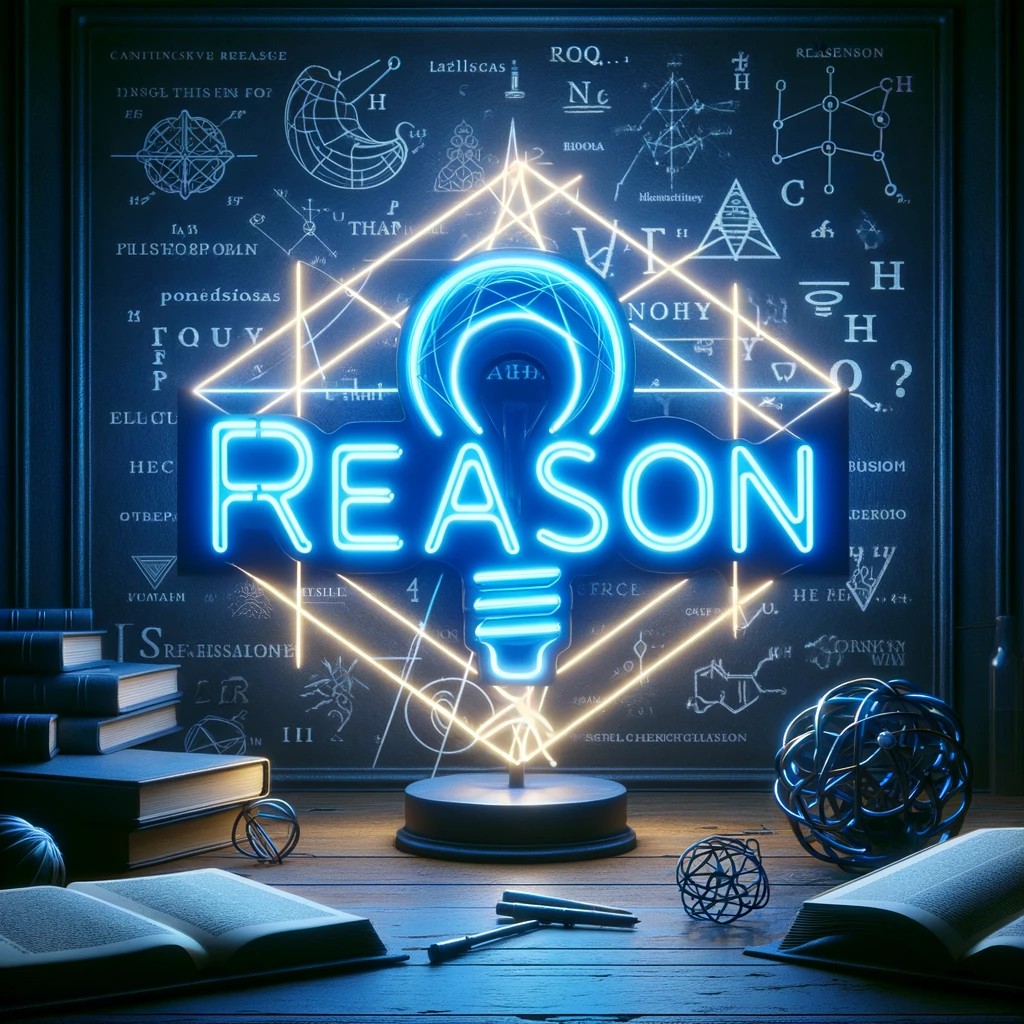
Reason is a fundamental cognitive and intellectual capacity that enables individuals to think logically, make informed judgments, solve problems, and engage in rational decision-making. It is a critical aspect of human thought and plays a central role in various domains. Key aspects of reason include:
- Logical Thinking: Reason involves the ability to think logically and systematically, identifying relationships between ideas, concepts, and evidence.
- Problem Solving: Reasoning is essential for problem-solving, as it allows individuals to analyze complex issues, break them down into manageable parts, and develop effective solutions.
- Critical Thinking: Critical thinking is a subset of reasoning that involves evaluating information, arguments, and evidence objectively and critically, often to make informed decisions.
- Evidence-Based Decision-Making: Reasoning is closely tied to evidence-based decision-making, where individuals base their judgments and choices on available evidence, rather than relying solely on intuition or emotion.
- Inductive and Deductive Reasoning: Reason encompasses both inductive reasoning (drawing general conclusions from specific observations) and deductive reasoning (deriving specific conclusions from general principles or premises).
- Scientific Inquiry: Reason plays a pivotal role in the scientific method, where hypotheses are formulated, tested, and refined through logical and empirical reasoning.
- Ethical Reasoning: Ethical reasoning involves evaluating moral dilemmas and making ethical decisions based on principles and values.
- Mathematical Reasoning: Mathematical reasoning is a specific form of reason used in solving mathematical problems, equations, and proofs.
- Emotion and Reason: Emotion can influence reason, but effective reasoning often involves the ability to balance emotional responses with logical analysis.
- Decision-Making Heuristics: Individuals may use decision-making heuristics or cognitive shortcuts in reasoning, which can lead to efficient decision-making but may also introduce biases.
- Persuasion and Argumentation: Reasoning is essential in constructing persuasive arguments and engaging in constructive debates, particularly in fields like rhetoric and law.
- Creative Reasoning: Creativity and reason can intersect, as creative thinking often involves making novel connections and generating innovative solutions.
- Philosophical Inquiry: Philosophy is a discipline deeply rooted in reason, exploring fundamental questions about existence, knowledge, ethics, and reality through logical and philosophical reasoning.
- Development of Reason: Reasoning abilities develop and mature over time, influenced by education, experience, and exposure to diverse perspectives.
- Cognitive Flexibility: Reasoning is associated with cognitive flexibility, allowing individuals to adapt their thinking to different situations and challenges.
In summary, reason is a foundational cognitive capacity that underpins critical thinking, problem-solving, scientific inquiry, and ethical decision-making. It is a fundamental element of human intelligence and is essential for making informed choices, understanding the world, and advancing knowledge in various fields. Cultivating strong reasoning skills enhances intellectual prowess and promotes sound judgment in both personal and professional contexts.